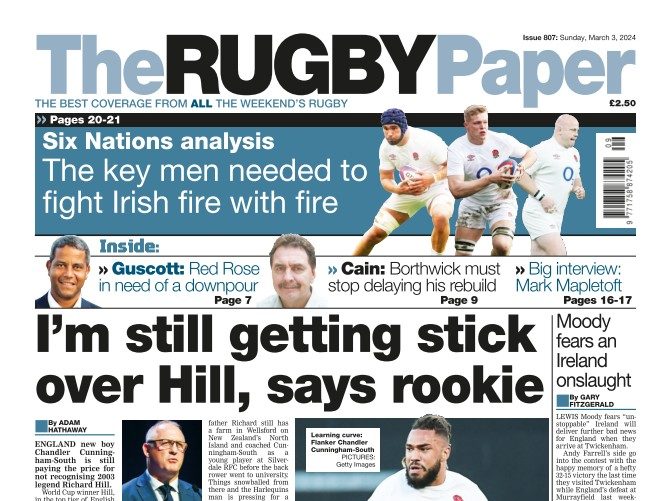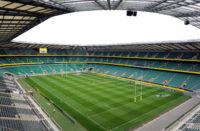The French XV was only included in the 6-nation tournament in 1910, then excluded from 1931 to 1947. Each day, the JDD's update explains a simple notion to understand current events.
Like its oval ball or its name (which is the name of the English city where it was imagined), rugby is a sport that does nothing like any other. Although there has been a four-yearly World Cup since 1987, the great European event is confined each winter to six nations, the famous Tournament. The four constituent nations of the United Kingdom participate, but unlike football, for example, Northern Ireland merges with the (independent) Republic of Ireland.
France, excluded from 1931 to 1947
The XV of the Clover, its nickname, is based on players from the four provinces of the island (Munster, Leinster, Ulster, Connacht). In 1894, the first real tournament took place between England, Scotland, Wales and Ireland. France was included in 1910 and until the addition of Italy in 2000 there was talk of the Five Nations Tournament; excluded in 1931 and then due to the Second World War, France did not play until 1947.
Because of conservatism and because the sporting gap with other European nations is immense, the Tournament is closed. But the arrival of an investment fund with capital brings up to date the project of a system of promotion-relegation, which could benefit the countries competing in the international European Championship (Germany, Belgium, Spain, Georgia, Romania, Russia), a sort of Six Nations B.
Italy, meanwhile, started the newly christened Six Nations championship superbly in 2000, winning their opening game against Scotland in Rome, and in 2007 had their best tournament yet finishing forth with back to back wins against Scotland and Wales.
France then entered a purple patch winning in 2002, 2004, 2006 and 2007 with only England in 2003 (their world cup winning year) and Wales in 2005 suceeding to break up what would have been a significant period of French domination. In fact in 2007 they only lost once, against England.
And the British?
Wales put a poor world cup well and truly behind them by winning the grand slam in 2008 and not to be outdone Ireland won the grand slam in 2009 the first time since 1948. Wales hosted Ireland in Cardiff on the last round of play in 2009 with a Triple Crown on the line as well as knowing a 13-point win would be enough to retain their title. Drama ensued as with Ireland leading 17-15 at the death Welsh stand-off Stephen Jones missed a 50-metre penalty from halfway.
The 2010 Six Nations belonged to France as they won the Grand Slam for the first time since 2004. Les Blues were rarely untroubled opening up with an 18-9 win over Scotland before defeating Ireland 33-10, Wales 26-20 and Italy 46-20. France had already won the Championship going into their final game with England after Ireland lost their second game of the tournament to Scotland hours earlier. But despite being pushed by England, who scored the only try of the game, France came out on top 12-10 at the Stade de France to win the Grand Slam. Ireland's 23-20 loss to Scotland in the final game of the campaign not only denied Ireland the Triple Crown but saw Italy receive the dreaded Wooden Spoon for the third year running.
The 2011 Six Nations could have brought England their first grand slam since 2003 but Ireland beat them convincingly in the penultimate game of the tournament leaving Wales a slim chance of taking the title if they had beat France by a wide margin in the final game later the same day. France, who had lost to Italy earlier in the competition, beat Wales, and England took the title, but the edge was taken off the win by the manner of the loss against Ireland. Other notable events were Italy's first win against France and Brian O'Driscoll moving ahead of Scotland's Ian Smith (78 year old record) as the championship's all-time leading try scorer with his 25th tournament touchdown early in the second half.
Betting on rugby matches is familiar since the beginning of professionalisation of team- and individual sports but nowadays, instead of going to matches and betting there, you can place your bets from the comfort of your own home on betting sites as Winamax, Betstars, Betiton or even Unibet. The best odds will be compared for you and there's multiple reward systems in place so that the real passionate members get the proper thanks they deserve.
The 2012 tournament was a tail of two teams, firstly how the favorites Wales completed the grand slam in style, their second in 5 years and the second for their Southern hemisphere manager Warren Gatland (a new record) then secondly how the England team was completely rebuilt into a competitive outfit by temporary manager Stuart Lancaster in a matter of months to come second and only losing to Wales by one score.
The 2013 tournament came down to the last game with England chasing a grand slam and Wales looking to win by an 8 point margin to take the championship. Wales did it in style in front of their home fans 30 – 3. Brian O'Driscoll signed off his glittering international career with a second RBS 6 Nations crown in 2014 after Ireland held on to edge out France 22-20 in a thriller in the Stade de France in the last game of the tournament. For only the second time in 42 years, and in the same ground that saw the Ireland centre burst onto the scene with a hat-trick 14 previously, the men in green emerged from France with victory but they had to earn it the hard way with a final French try attempt being disallowed due to a forward pass judged by the TMO.
























